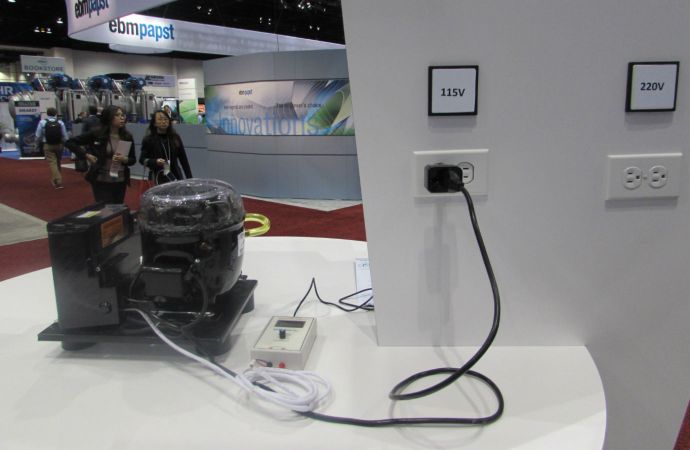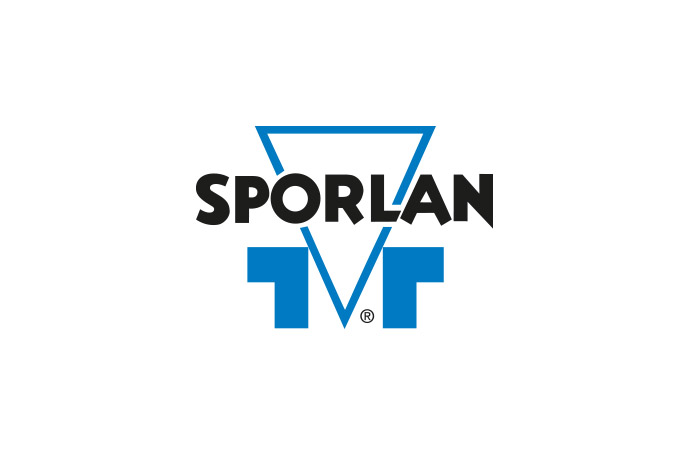At the Parker SPORLAN booth, Bill Wilken, National Account Manager Sporlan Division, presented on “Hydrocarbons and other natural refrigerants,” providing an overview of the refrigerant safety group and safety procedures relating to R290 (propane), R600a (isobutene) and R1270 (propylene).

According to Wilken’s presentation, “The long term future is unlikely to include any of the synthetic refrigerants in widespread use today,” and will instead consist largely of refrigerants including CO2, hydrocarbons and ammonia. Already today, forward-thinking organisations like Ben & Jerry’s, General Electric, A.S. Trust and Holdings and True Manufacturing are investing in hydrocarbons. Expecting this to be part a growing trend, Parker SPORLAN took the opportunity to inform their US customer base about these future-proof refrigerants.
R290 a good alternative to R22
With similar thermodynamic behaviour and performance, R290 is considered a good alternative to R22, whose use is currently being phased out because of its high GWP. Wilken’s presentation summarised the similarities between R290 and R22 as follows:
Due to their carbon basis, hydrocarbons are classified as organic refrigerants, and, according to ASHRAE 34 and ISO 817, hydrocarbons are graded as A3, having lower toxicity but higher flammability.
Safety guidelines for hydrocarbon refrigerants
Wilken made clear that for the safe use of hydrocarbon refrigerants the following basic criteria must be adhered to:
SPORLAN has issued Bulletin 2010-10-20, “Engineering and Safety Guidelines” for the application of Parker TEV Products on systems utilising hydrocarbons R600a, R290, and R170 (ethane) as working fluids. According to the Bulletin, in general, the materials of construction used in Thermostatic Expansion Valves (TEV) such as type BBI, CBBI, R, EBS, and O, will not be affected by these refrigerants.
About Parker-SPORLAN
Parker Hannifin is one of the world's leading diversified manufacturers of motion and control technologies and systems. Its SPORLAN division has been active in the field of HVAC&R components for over 70 years.
R290 a good alternative to R22
With similar thermodynamic behaviour and performance, R290 is considered a good alternative to R22, whose use is currently being phased out because of its high GWP. Wilken’s presentation summarised the similarities between R290 and R22 as follows:
- Similar boiling points
- Low discharge temperature
- Few component changes
- Compatible with most seal and gasket materials
- Compatible with common lubricants
Due to their carbon basis, hydrocarbons are classified as organic refrigerants, and, according to ASHRAE 34 and ISO 817, hydrocarbons are graded as A3, having lower toxicity but higher flammability.
Safety guidelines for hydrocarbon refrigerants
Wilken made clear that for the safe use of hydrocarbon refrigerants the following basic criteria must be adhered to:
- Use a gas monitor
- Maintain good ventilation
- Eliminate all ignition sources
- Use special cautionary labelling
SPORLAN has issued Bulletin 2010-10-20, “Engineering and Safety Guidelines” for the application of Parker TEV Products on systems utilising hydrocarbons R600a, R290, and R170 (ethane) as working fluids. According to the Bulletin, in general, the materials of construction used in Thermostatic Expansion Valves (TEV) such as type BBI, CBBI, R, EBS, and O, will not be affected by these refrigerants.
About Parker-SPORLAN
Parker Hannifin is one of the world's leading diversified manufacturers of motion and control technologies and systems. Its SPORLAN division has been active in the field of HVAC&R components for over 70 years.
MORE INFORMATION
Related stories

_1477296886.png)


